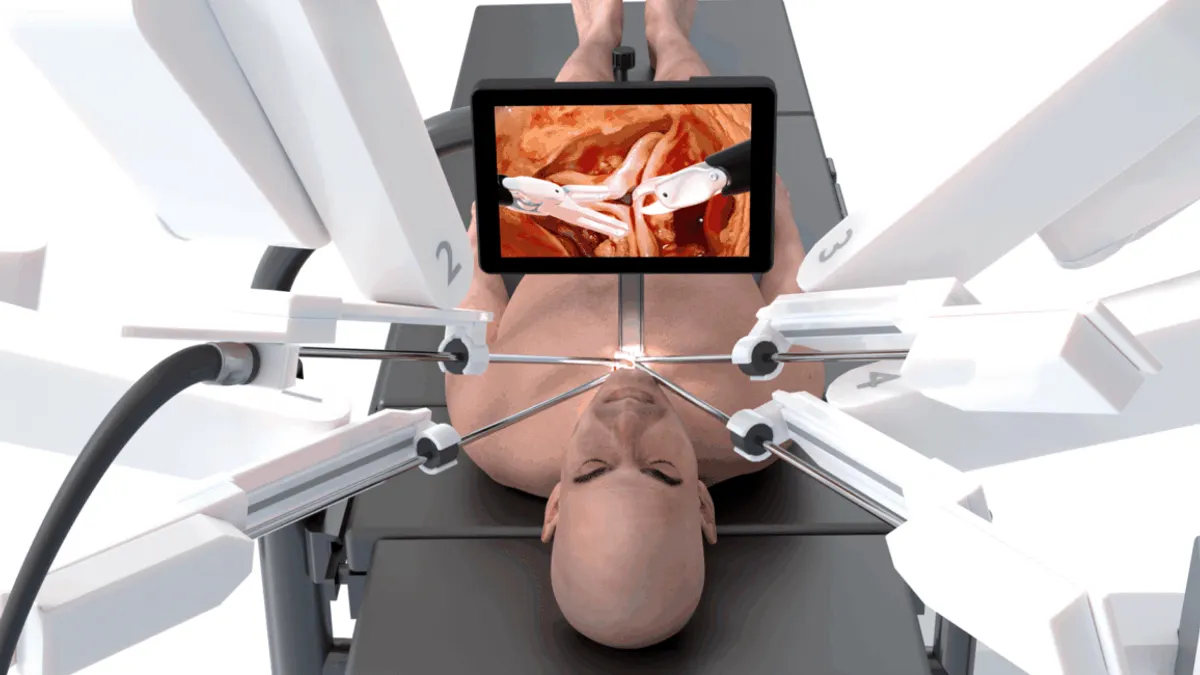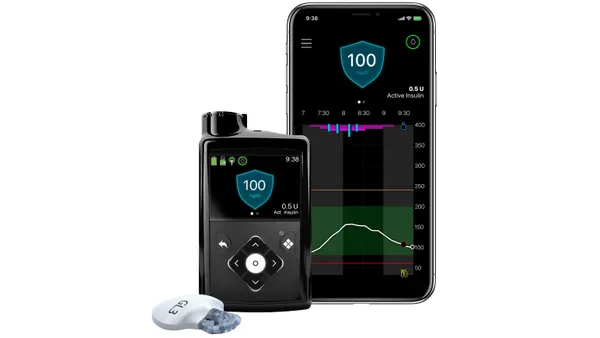Dive Brief:
- The first heart valve implanted in a patient using a new robotically assisted approach to valve replacement has been completed at the Cleveland Clinic.
- The Perceval Plus artificial aortic valve, designed by Corcym, was implanted using technology from CardioPrecision, Corcym said Monday.
- The valve was delivered to the patient’s heart through a small incision at the base of the neck. Cleveland Clinic surgeon Marijan Koprivanac used robotic assistance for the procedure, called advanced videoscopic aortic valve surgery by transcervical approach, to implant the valve.
Dive Insight:
Corcym is working to develop a minimally invasive approach to valve surgery that can offer better outcomes for patients than transcatheter aortic valve replacement, CEO Christian Mazzi said in an interview.
TAVR, in which a replacement valve is threaded through the arteries to the heart via a catheter, has gained in popularity because it is less invasive than open heart surgery, which requires splitting the patient’s sternum. Edwards Lifesciences and Medtronic lead the market for TAVR devices.
Traditional valve surgery, however, still provides better long-term clinical results. “Ultimately, surgery is the best, most durable intervention you can do for a patient,” said Mazzi. “It's been proven to last longer, do better in the long run.”
Corcym’s transcervical approach allows the physician to remove diseased tissue during the procedure and aims to enable outcomes similar to traditional surgery, in addition to the benefits of TAVR, such as less pain, faster recovery and less scarring. CardioPrecision’s CoreVista platform works with a robot to support the procedure.
“That's the whole thing that we're trying to achieve through minimally invasive surgery,” Mazzi said. “There are all the benefits of TAVR in terms of the short run, with all the benefits of surgery in the long run.”
Combining the artificial heart valve with the new surgical technology means patients should experience less pain and time in the hospital after heart surgery, Cleveland Clinic’s Koprivanac said in a statement. "In fact, we believe that this may be one of the least invasive surgical heart valve replacement options now available," Koprivanac said.













